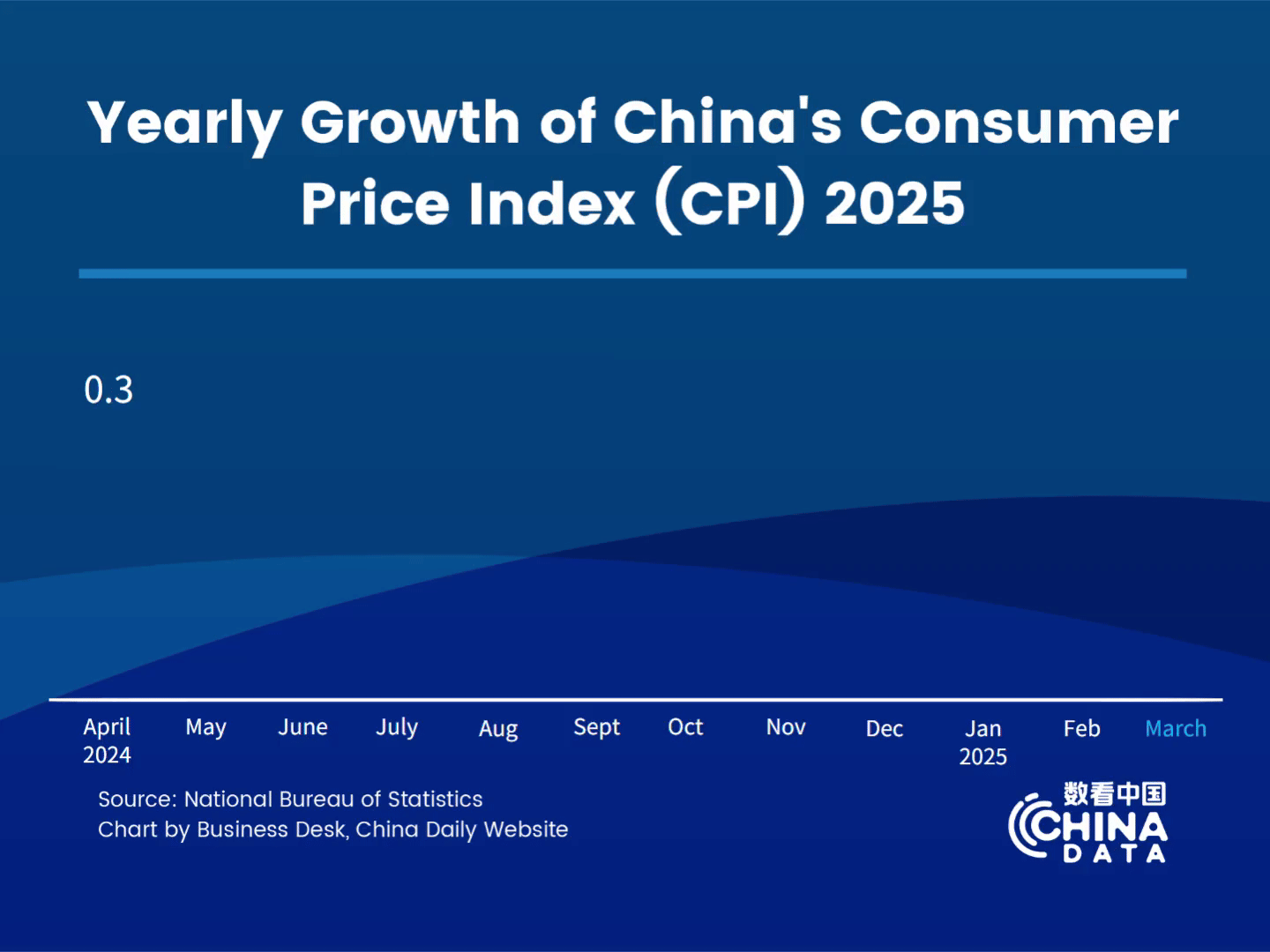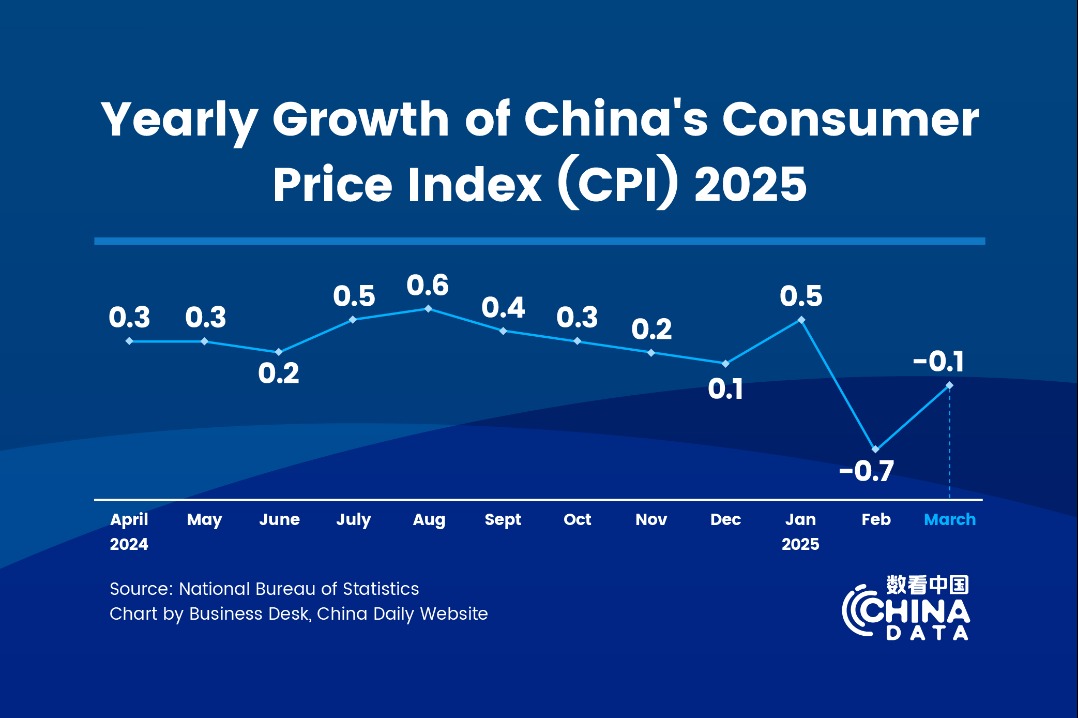China's CPI down 0.1% in March


China's consumer prices fell at a slower pace in March, while the annual decline in factory-gate prices deepened, official data showed on Thursday.
The country's consumer price index, the main gauge of inflation, fell by 0.1 percent year-on-year in March after a 0.7 percent drop in February, according to the National Bureau of Statistics.
Within the CPI, food prices dropped 1.4 percent year-on-year versus a 3.3 percent fall in February. The prices of beef, fresh vegetables, eggs and aquatic products fell by 10.8 percent, 6.8 percent, 1.6 percent, and 0.2 percent, respectively, with all showing narrowing declines. Meanwhile, pork, a staple meat in Chinese cuisine, saw prices go up by 6.7 percent in March.
Month-on-month, the CPI dipped 0.4 percent in March, following a 0.2 percent drop in February.
The growth in core CPI, which excludes volatile food and energy prices and is deemed a better gauge of the supply-demand relationship in the economy, rose by 0.5 percent year-on-year in March after a 0.1 percent dip in February.
Dong Lijuan, an NBS statistician, attributed the month-on-month CPI decline to the abundant supply of food due to warmer weather, lower prices of travel-related services in the off-season and declining international oil prices.
Dong also highlighted the emergence of some positive signs such as the narrowing decline in year-on-year CPI and the growth in core CPI, saying policies aimed at boosting consumer demand started to take effect, and the impact of the timing difference of the Spring Festival holiday gradually faded.
China's producer price index, which gauges factory-gate prices, dropped by 2.5 percent year-on-year in March, widening from a 2.2 percent fall in February, the NBS said.
On a month-on-month basis, the PPI dropped 0.4 percent in March after a 0.1 percent decrease in February, according to the NBS.
Dong said the factory-gate prices declined due to factors including lower prices for domestic petroleum products and certain export-oriented industries, seasonal weakening demand for energy products such as coal, and the declining prices in several raw materials.
ouyangshijia@chinadaily.com.cn




































